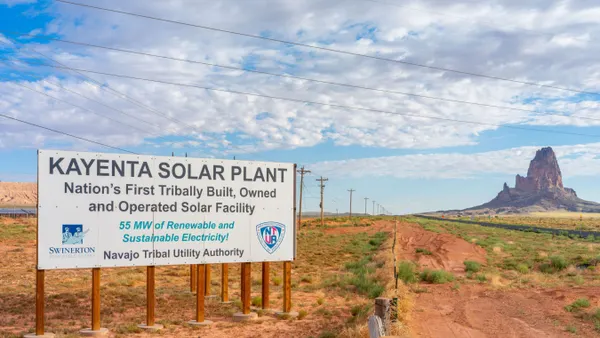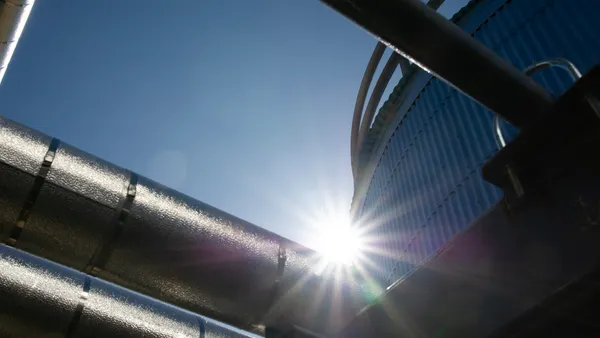Dive Brief:
-
A bill introduced in the Colorado legislature seeks to support the ability of electric customers to install residential energy storage units in their homes for use during outages.
-
One of the provisions of the bill, SB17-089, sponsored by Sens. Steve Fenberg (D) and Kevin Lundberg (R), would restrict the ability of utilities in the state to impose additional charges on energy storage customers.
- The bill, which would apply to residential storage systems up to 25 kW (AC), also seeks to make the interconnection approval process for solar-plus-storage systems no more complex than the existing approval process for rooftop solar systems.
Dive Insight:
Some utilities are fighting back against the growth of rooftop solar by imposing fees and changing rate structures. Arizona is just one example of a state where those battles are being fought. But now some Colorado lawmakers are hoping to head off potential similar tactics for energy storage.
The bill introduced by state senators Fenberg and Lundberg would apply to storage systems greater than 25 kW and limit the ability of utilities to set fees and charges that discriminate against customers who install storage systems.
“Colorado consumers should have the ability to install batteries that could not only lower their utility bill every month but also serve as a backup if the power were to go out," Senator Fenberg said in a statement. "The use of electrical storage systems is not just cost-saving for the consumer, but it helps reduce costs for all of Colorado’s ratepayers."
Colorado has become a testing ground of late with energy storage and microgrid efforts. Last year, regulators approved Xcel Energy's 9.1 million plan to test battery storage at two sites as part of the company's Innovation Clean Technology (ICT) demonstration project production.













